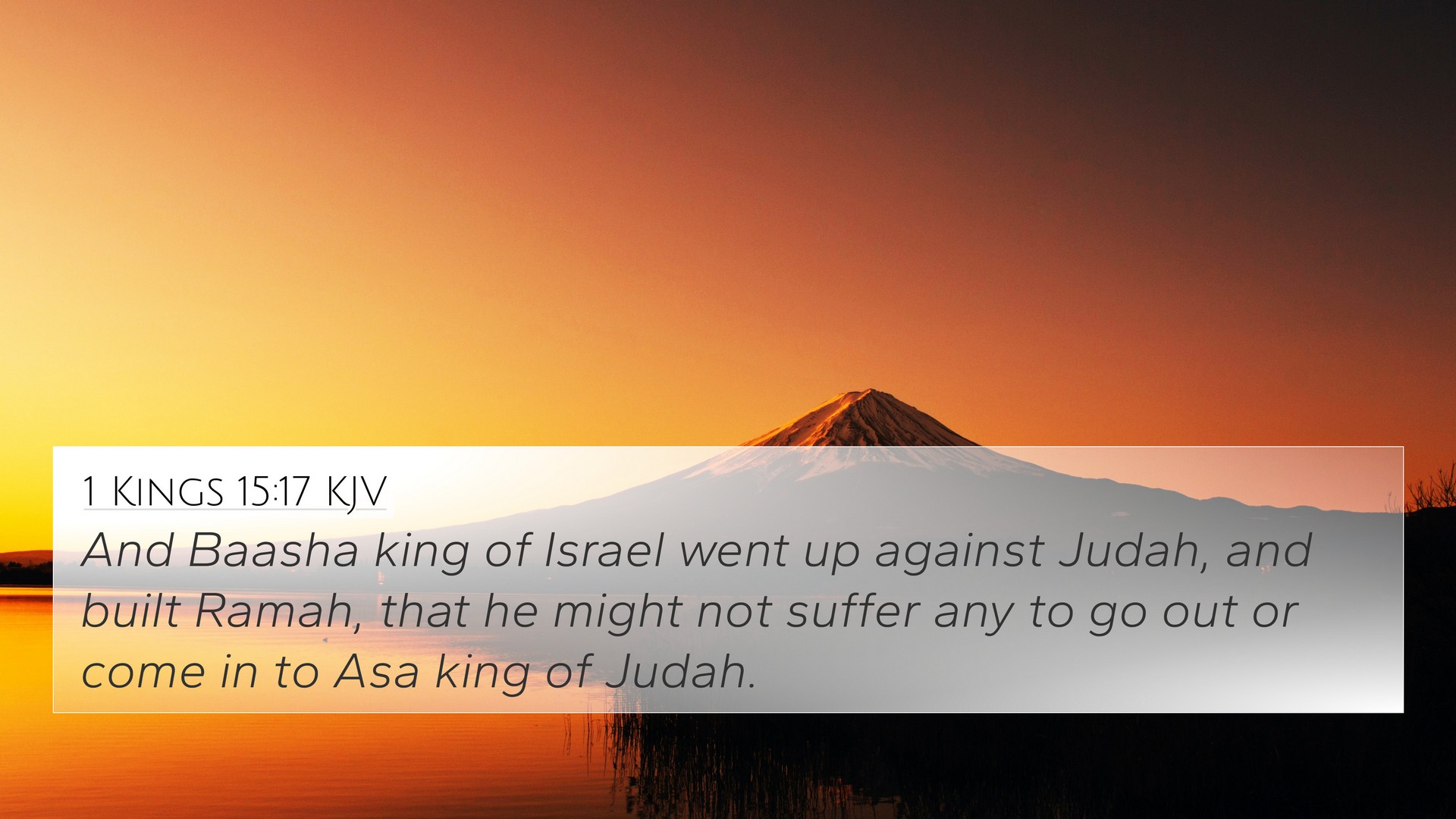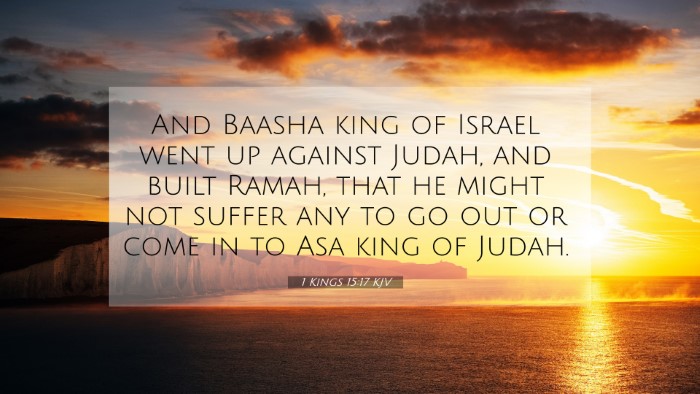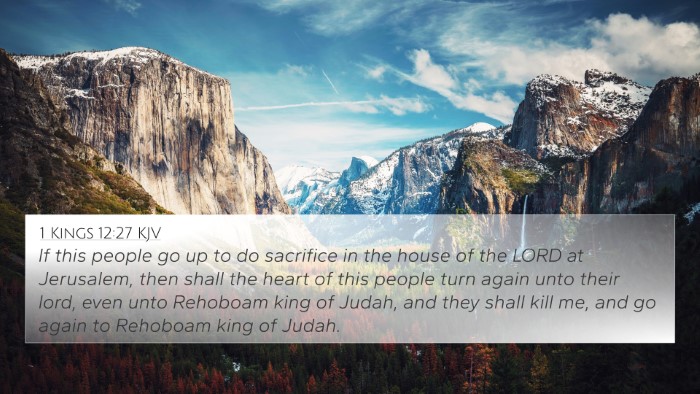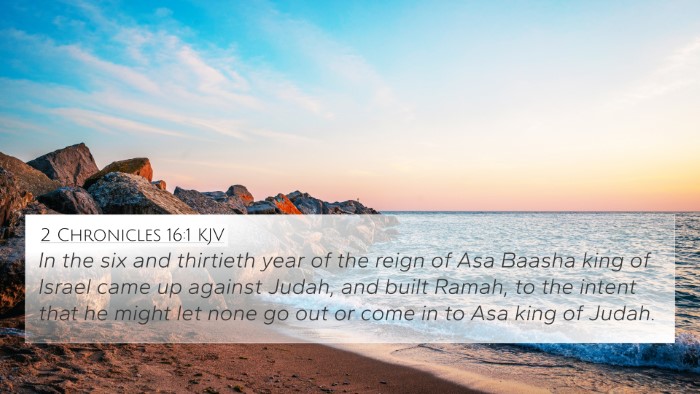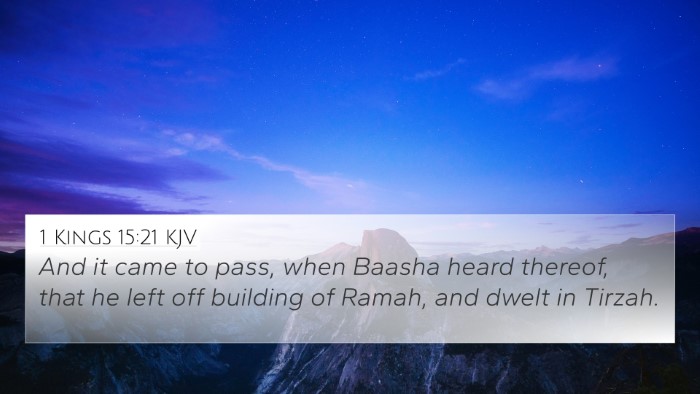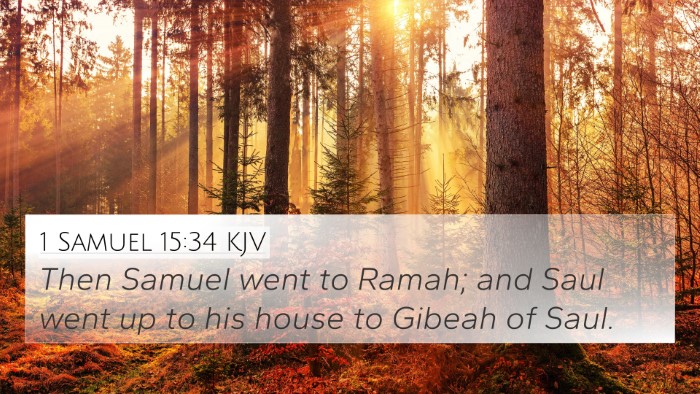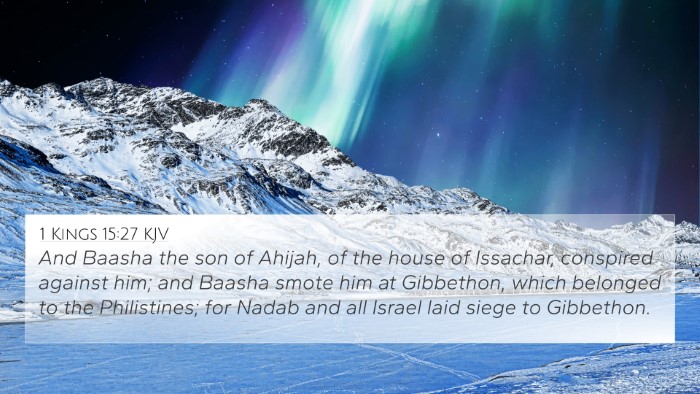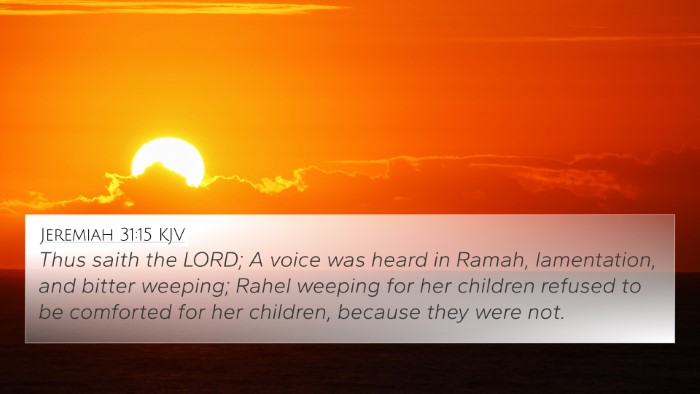Understanding 1 Kings 15:17
Verse: 1 Kings 15:17 - "And Baasha king of Israel went up against Judah, and built Ramah, that he might not suffer any to go out or come in to Asa king of Judah."
This verse presents a conflict between the kingdoms of Israel and Judah during the reign of Asa. The king of Israel, Baasha, constructs Ramah as a strategic move to prevent his adversary Asa from establishing alliances with neighboring regions.
Commentary Insights
-
Matthew Henry:
Henry explains that Baasha's action symbolizes a hostile stance towards Judah, where he seeks to consolidate power and weaken Asa's influence. Furthermore, Baasha's fortification works serve to illustrate the ongoing turmoil and division within the Israelite kingdoms, emphasizing the prophetic backdrop to the civil unrest.
-
Albert Barnes:
Barnes notes that constructing Ramah was a decisive military strategy aimed at cutting off Asa's access to resources and alliances. This tactic corresponds with the political landscape of the time, where control over territory was essential for kingship. He emphasizes the significance of Ramah not only as a military outpost but also as a symbol of Baasha's defiance against Judah.
-
Adam Clarke:
Clarke highlights the historical context of the conflict, suggesting that Baasha intended to fortify Ramah to solidify his reign over Israel and suppress Asa's power. He connects this to the greater narrative of the divided kingdoms and the prophetic warnings that had preceded these events, showing a divine orchestration behind kings' actions.
Cross-References for Deeper Understanding
1 Kings 15:17 can be connected to several other biblical passages that reflect its themes of conflict, strategy, and divine sovereignty:
- 1 Kings 12:16-20 - The split of the kingdom further sets the stage for the animosity between Israel and Judah.
- 2 Chronicles 14:9-13 - Asa's reliance on God in battle against Zerah the Ethiopian contrasts with the conflict he faces with Baasha.
- 1 Kings 16:1-4 - God's judgment on Baasha reveals the consequences of his actions in seeking power through aggression.
- 2 Chronicles 16:1-3 - Asa's reliance on an alliance with Aram over trusting God parallels his response to Baasha's threats.
- Isaiah 8:7-8 - A prophetic insight into the looming danger against Judah reflects the geopolitical tensions of the time.
- Matthew 10:36 - A New Testament perspective on familial and national divisions resonates with the spiritual lessons learned from the conflicts between these two kingdoms.
- James 4:1-2 - The source of conflicts and quarrels among individuals emphasizes the timeless nature of human conflict.
Thematic Connections
One can note several themes illustrated through 1 Kings 15:17:
- Conflict and Division: The ongoing struggle for power between kings as representative of larger spiritual battles.
- Military Strategy: The use of fortifications and alliances as a reflection of human efforts versus divine sovereignty.
- Divine Judgment: The ultimate consequences of leaders who pursue power unlawfully and disregard God's will.
- Prophetic Influence: The backdrop of prophetic declarations that guide and warn the kings of Israel and Judah.
Application and Reflection
The events in 1 Kings 15:17 serve as a reminder for contemporary believers about the importance of divine guidance in decisions and actions. While Baasha sought a power grab through human (and hostile) means, God’s sovereignty entails that true strength and victory come through alignment with His will.
For modern readers, reflecting on the cross-references and thematic connections enhances the understanding of how the narratives of the Old Testament inform the New Testament and the spiritual lives of believers today.
Further Study and Tools
For those interested in pursuing deeper biblical studies, several tools are available to aid in Bible cross-referencing:
- Bible Concordance: A resource that lists every occurrence of words in the Bible.
- Bible Cross-Reference Guide: Provides connections between similar verses.
- Comprehensive Bible Cross-Reference Materials: Books and online resources dedicated to linking relevant scriptures.
- Cross-Reference Bible Study: Methods employed to discover relationships between biblical texts.
